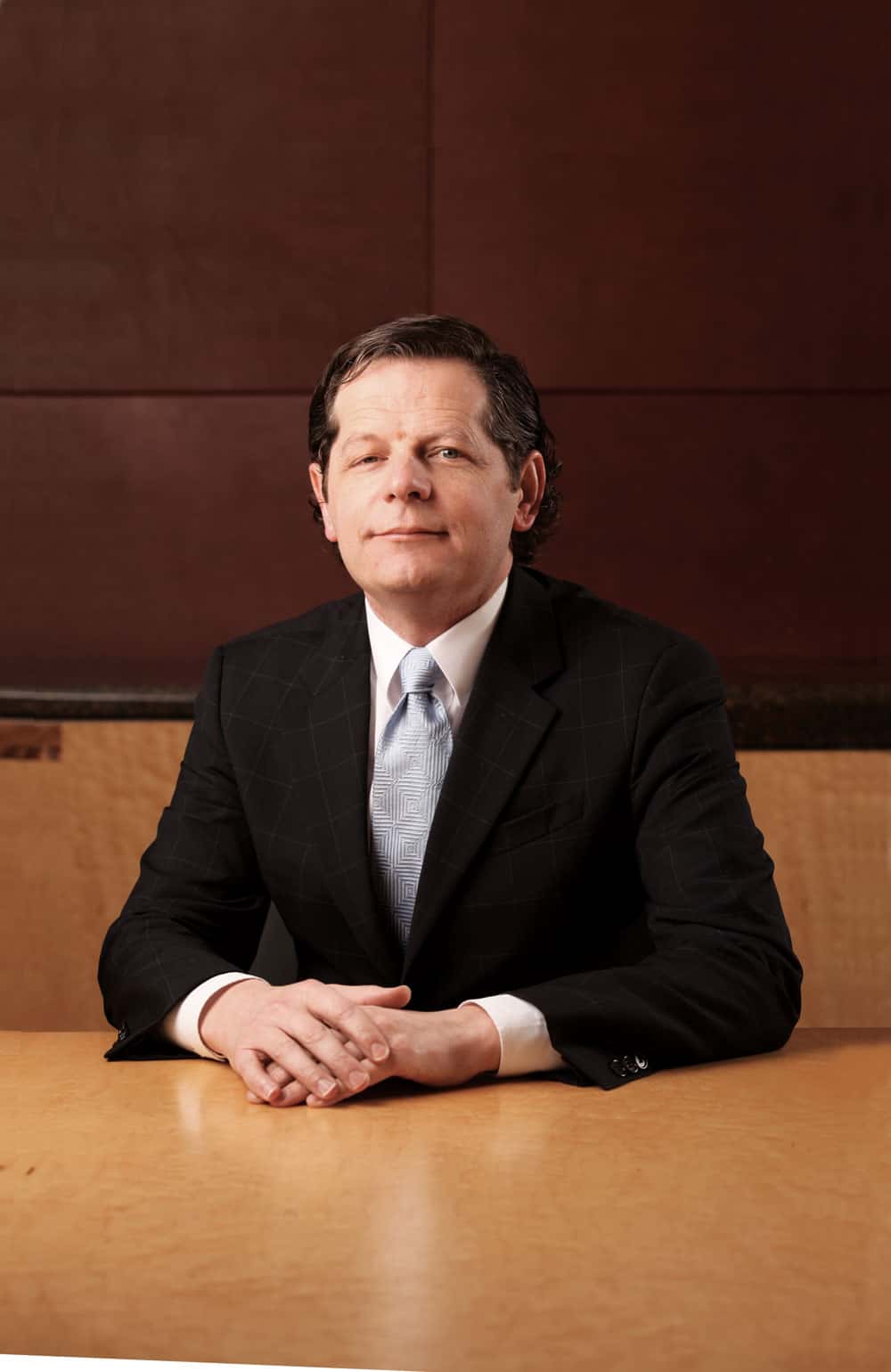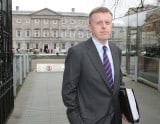The Government seems increasingly willing to look beyond Merrion Street for its experts. But is the nature of financial advice available to government improving? And is it all about the politicians anyway? Patrick Freyne reports.
There’s been a lot of discussion in recent years about the nature and quality of government advice leading up to, and during the financial crisis. The excuse used by government to shield themselves against criticism was that fiscal policy was decided with reference to “the best advice” available. However, with respected auditors at the time giving soon-to-be insolvent banks clean bills of health, former finance ministers paying desperate late night visits to popular economists and a captured and under-resourced financial regulator, it’s hard to believe they believed this themselves.
The most straightforward critique of financial expertise in the halls of power was the Wright Report – an independent review of the Department of Finance that highlighted a significant skills deficit. The way in which government policy has changed in response to the crisis is also a telling indictment of what went before – when seemingly no-one sought to apply the brakes to a runaway economy. In recent years, government institutions such as the Department of Finance, the Regulator, the Central Bank and the National Treasury Management Agency (NTMA) have been going out of their way to ‘skill up’. This includes the employment of several high-profile experts from outside the Civil Service. These include the regulator, Matthew Elderfield, the Governor of the Central Banker, Patrick Honohan, and the newly-appointed head of the Department of Finance, John Moran. The Department of Finance is now also hiring employees with more specific skills. It plans to expand its numbers by around 40 people in 2012.
“The evidence from their own analysis is that they were very deficient in terms of both technical skills and formal qualifications in technical skills,” says Prof Brian Lucey, a finance lecturer at TCD. “Imagine if there were no medical officers in the Department of Health, or no quantity surveyors or engineers or architects employed by the OPW.
Expertise
If you look at the Wright Report, it shows that there was really a poor quality of observable technical skills in the Department of Finance in terms of economic, financial, taxation issues. Given this, one would imagine that the thing to do would be to reach out, but the evidence is that they’ve reached out primarily to a very small group of consultants – your PwCs and Merrill Lynches.” Arguably, some of the institutional failures are a product of a changing world, and there are some areas in which civil servants clearly know their stuff. “Cutting public expenditure and raising taxes is a home fixture for the Department of Finance,” says Colm McCarthy, a UCD-based economist and consultant brought in to head up An Bord Snip Nua. “That’s what they do and they’ve done it before. During the public finance crisis in the 1980s, they set up a Bord Snip. Another mess and what do they do? Cut expenditure and raise taxes and set up a Bord Snip Nua. But there was never a banking crisis in Ireland before, and the problems that the Irish Government are dealing with now are much more complex than 30 or 40 years ago. Now they have some very complicated policy challenges to deal with. The world has got more globalised and the civil service hasn’t always kept pace.”
McCarthy observes that the finance department is, in fact, modelled on “the old Whitehall civil service – it recruits people and doesn’t really put a high emphasis on technical expertise but on integrity and experience. We have the last Whitehall civil service in the world.”
The idea that the department has been “neglected” is a truism among economy-watchers. Brian Lucey refers to a “hollowing out” of the department (particularly during Bertie Ahern’s tenure as finance minister). Philip Lane, another TCD professor, seems to agree. “The tradition in the Irish public sector was that they ‘grow their own’,” he says. “I think that’s something that should have changed a long time ago. When we joined the euro back in 1999, it was a new world and the advisory structures should have been changed. When John Hurley was appointed to the Central Bank, I wrote in the Irish Times that it was the first time we had appointed a Central Bank governor under the EMU and that that person needed to be a really good economist and not a civil servant. There was an economic unit back in the early 1980s, but what is interesting is that from the mid-1990s onwards, there was an idea that took hold in the department that there was no such thing as an economist. You just joined as a civil servant. And that’s an environment for groupthink because your range of contacts is very small.”
Indeed, for some, the problems go beyond issues of expertise and into the realm of pure numbers. There are currently 282 people in the finance department, and some think it isn’t enough. “You’d be surprised how thin it is at the top,” says Colm McCarthy. “There are only a handful of people at a really senior level, working 12-hour days. They actually need more bodies as well as better ones. I suppose there’s been a ésprit de corps in the treasury department. They’re telling everyone not to waste money so they can’t be seen to be wasting money themselves. The carpets in the Department of Finance are not as new as the carpets in other departments. So they think they’d better not employ more people in order to set a good example for everyone else. I think they should simply hire what they need.”
A consequence of a limited skill-set is a lack of imagination. During boom-time, much of the advice internally (and, beyond a few lonely voices, externally) pointed to only one rosy outcome for the Irish economy. “There was a strong consensus,” says John McHale, an NUIG economist and chair of the Fiscal Advisory Council. “I think the basic understanding of the Irish economy and the amount of modelling of the Irish economy that took place was very limited and not just in the Department of Finance but also in the Central Bank and elsewhere.”
Internally, such failures of imagination can only be fought by expanding expertise and there do seem to have been significant changes in the department’s attitude to recruitment. “The department has taken on board the recommendations of the Wright Report and is modernising its recruitment and developmental processes to supplement and increase the technical skills it already has,” says Niall O’Ceallaigh, HR manager at the Department of Finance (a relatively new appointment himself).
There has been much institutional restructuring over the past few years. The department has been split in two (into finance and public expenditure), the Central Bank and the Regulator have been merged again (as they were in the past), a much- hyped economic unit is being established under the aegis of Robert Watt in the Department of Public Expenditure, and the Department of Finance is currently recruiting people specifically skilled in economics, finance/banking, tax policy and human resources. They’ve also furnished me with a list of skilled secondments at the department (from public and private bodies including KPMG, PwC, the Central Bank, Revenue Commissioners, Teagasc and the NTMA) designed to temporarily fill the skills deficits that currently exist.
Groupthink
The department is clearly skilling up. Of course, ‘groupthink’ would be a danger even with a more skilled and technocratic treasury (plenty of highly-skilled experts were blindsided by both the property bubble and the banking crisis). With this in mind, the government has also established the Fiscal Advisory Council, essentially a committee of skilled and independent economic backseat drivers. “There’s been a major international movement in this direction,” says its chairman, John McHale. “A somewhat similar body was set up in the UK . . . and we’re most closely modelled on the Swedish fiscal council . . . There’s a lot of international evidence that countries show quite considerable debt and deficit biases which leads to a quite pro-cyclical fiscal policy where they tend to spend a lot and cut taxes during booms, fuelling those booms. Then when they find themselves in recessions, they’re forced to have a very contracting fiscal policy that becomes very pro-cyclical on the downside as well. So there’s been increased interest in the political costs of running bad fiscal policy. That’s why the idea of a fiscal watchdog has come into play . . . to take a sceptical view of any consensus that’s forming.”
Brian Lucey welcomes the establishment of the council but says he would like to see even wider engagement with economists beyond the department. “I’d like to see a government economic service, with economists who’re not just well trained but also interacting on policy and presenting papers at international conferences.”
He also notes that the publicly-paid economists working at universities could be put to use. “Economists will work for tea and biscuits,” he says. “There are a large number of people on the public payroll, so why not use them?”
For the most part, the make-over of the finance department and other government institutions is welcomed, but there is, understandably, some cynicism about the timing (“Horse! Barndoor!” laughs one economist when I outline the changes). Cynics could further argue that as long as we’re slaves to the EU/ECB/IMF programme, independent governmental advice and expertise is almost beside the point.
More crucially, however, having a pool of experts internally and externally dispensing advice does not mean that decision-makers will listen to the advice that they are given – particularly in an environment where pressure groups and lobbyists are pushing for popular counter-cyclical policies.
Indeed, we can’t even be certain that all the advice given in the past was bad (“We don’t even know what a lot of it was, because it was private,” says Philip Lane) and there is plenty of evidence that the government ignored some of the more prescient advice given (Merrill Lynch reportedly warned against adopting the banking guarantee, and the Wright Report notes that the finance department’s timidly offered advice was often ignored).
Responsibility
“I think the issue isn’t really about what the advice is,” says Lane. “It’s really about the decision-makers, whether that’s the Financial Regulator, the Central Bank governor or the politicians on the finance side. The advisers over the years might have been a little too lukewarm in saying ‘listen, there’s a risk here’ and I think that the advice should have been much more aggressive, but I think it’s important to emphasise that the responsibility lies with the decision makers.”
Indeed, what Lane says next suggests I’m asking the wrong questions. “Expertise is important but the core issue is what experts are for,” he says.
“Should you appoint them as advisers or should you actually appoint experts to decision-making jobs in the first place? In the Central Bank, we’ve appointed Patrick Honohan to make decisions. But it’s trickier on the finance side because fiscal policy is very political. All those civil servants can do, skilled or otherwise, is to give advice. That goes back to what sort of politicians you want to have making those decisions. In America ,[Treasury Secretary] Timothy Geithner isn’t elected, he’s appointed because of his expertise. So then it comes down to how we chose our politicians . . . but that’s really about the political system. It’s a whole other issue.”







